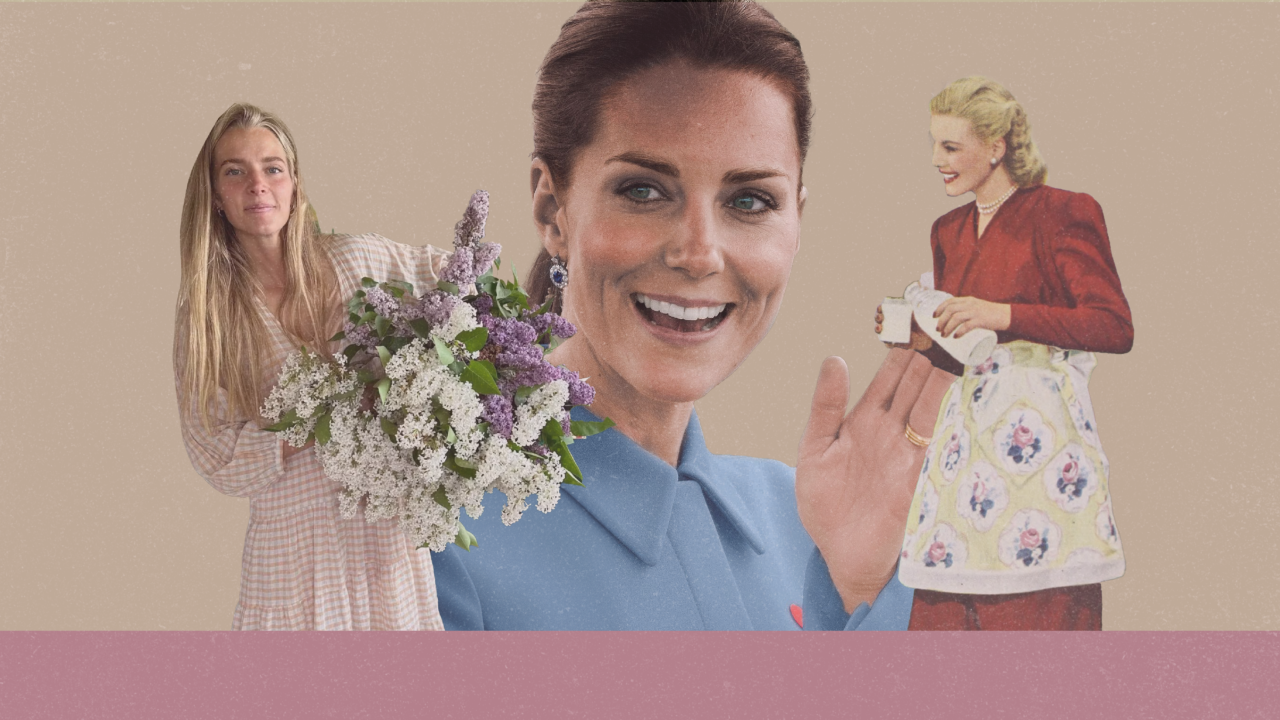- Feb 5, 2002
- 166,616
- 56,250
- Country
- United States
- Faith
- Catholic
- Marital Status
- Married
- Politics
- US-Others
March is Women’s History Month in the U.S., and a quote attributed to St. Edith Stein is ubiquitous across the Catholic social media landscape. “The world doesn’t need what women have,” the saying goes, “It needs what women are.”
That such words are appearing all over Instagram at this moment is perhaps providential, since the social networking site is in many ways the home of performative femininity. Now, “femininity” is a word that can sound outdated and a little precious. But if we define “femininity” simply as “what women should be like,” it is still very much alive and well. Influencers on Instagram and TikTok are once again repackaging the second wave feminist “you-can-have-it-all” cultural messaging that everyone from the Murphy Brown writers’ room to the Spice Girls have reinvented for their time. And as in many other areas of life in 2024, “having it all” can look a lot of different ways, because everyone can define for themselves what that means. Whether it’s the perfect skincare routine, morning ritual, or side hustle, there are plenty of voices on social media telling women how they can hack their minds, bodies, and lives for optimal performance and happiness. But somewhat surprising in this ferment is the popularity of the “tradwives,” women whose performative best life includes a return to traditional gender roles, domestic tasks, agrarian work, and slow, natural living. It’s a life characterized by simplicity and a rustic aesthetic. And like their influencer sisters pushing lip fillers, botox, self care, and lash extensions, they are viewed by millions of women through screens. They are being scrutinized—by turns enviously, critically, and aspirationally—not for who they are, but for what they have.
I queried my normie friends to see if they were familiar with the tradwife trend (an occupational hazard of being a writer is spending a lot of time online, so I wanted to make sure I was making sense). Most had never heard the term, but were familiar with the concept. “Christian moms who film themselves baking and talk about homeschooling their kids,” one of my friends said when I asked her. It was perhaps the most pithy summary of the way the trend is perceived, both by its admirers and detractors.
For the uninitiated, the best starting place to familiarize yourself with the tradwife (that’s a portmanteau of “traditional wife,” if you hadn’t figured it out) is an Instagram account called Ballerina Farm. A former ballerina and 2023 Mrs. America, Hannah Neeleman runs an Instagram, TikTok, and YouTube account chronicling life on her Utah farm, where she and her husband are ranchers raising eight children. She is beautiful, poised (“She Gave Birth Two Weeks Ago. Now She’s in a Beauty Pageant” is a headline from the New York Times profile of Neeleman earlier this year). She is also, as her well-appointed home indicates, rich—her father-in-law is a co-founder of multiple airlines.
Continued below.

 www.wordonfire.org
www.wordonfire.org
That such words are appearing all over Instagram at this moment is perhaps providential, since the social networking site is in many ways the home of performative femininity. Now, “femininity” is a word that can sound outdated and a little precious. But if we define “femininity” simply as “what women should be like,” it is still very much alive and well. Influencers on Instagram and TikTok are once again repackaging the second wave feminist “you-can-have-it-all” cultural messaging that everyone from the Murphy Brown writers’ room to the Spice Girls have reinvented for their time. And as in many other areas of life in 2024, “having it all” can look a lot of different ways, because everyone can define for themselves what that means. Whether it’s the perfect skincare routine, morning ritual, or side hustle, there are plenty of voices on social media telling women how they can hack their minds, bodies, and lives for optimal performance and happiness. But somewhat surprising in this ferment is the popularity of the “tradwives,” women whose performative best life includes a return to traditional gender roles, domestic tasks, agrarian work, and slow, natural living. It’s a life characterized by simplicity and a rustic aesthetic. And like their influencer sisters pushing lip fillers, botox, self care, and lash extensions, they are viewed by millions of women through screens. They are being scrutinized—by turns enviously, critically, and aspirationally—not for who they are, but for what they have.
I queried my normie friends to see if they were familiar with the tradwife trend (an occupational hazard of being a writer is spending a lot of time online, so I wanted to make sure I was making sense). Most had never heard the term, but were familiar with the concept. “Christian moms who film themselves baking and talk about homeschooling their kids,” one of my friends said when I asked her. It was perhaps the most pithy summary of the way the trend is perceived, both by its admirers and detractors.
For the uninitiated, the best starting place to familiarize yourself with the tradwife (that’s a portmanteau of “traditional wife,” if you hadn’t figured it out) is an Instagram account called Ballerina Farm. A former ballerina and 2023 Mrs. America, Hannah Neeleman runs an Instagram, TikTok, and YouTube account chronicling life on her Utah farm, where she and her husband are ranchers raising eight children. She is beautiful, poised (“She Gave Birth Two Weeks Ago. Now She’s in a Beauty Pageant” is a headline from the New York Times profile of Neeleman earlier this year). She is also, as her well-appointed home indicates, rich—her father-in-law is a co-founder of multiple airlines.
Continued below.

Tradwives, Kate Middleton, and Tradition - Word on Fire
The draw of tradwives and social media with simple, ordered lives rooted in tradition speak to something hardwired in the human condition.
